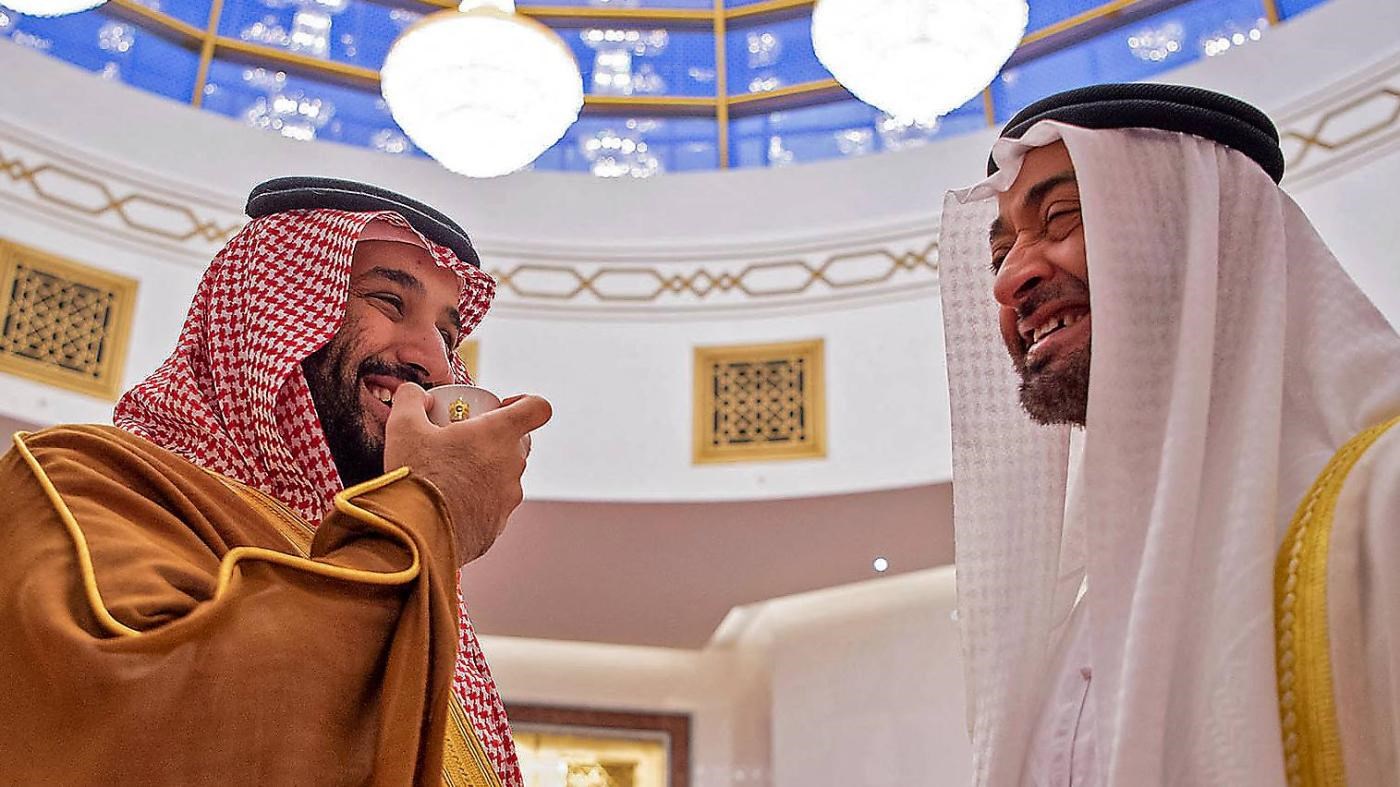Biden rebuffed, US relations with Saudi and UAE hit new low
The US' two main Arab allies in West Assia are questioning the basis of their relationship with Washington.

With Joe Biden now opening up his country's strategic oil reserves, questions have been increasing regarding the role being played by the US' two most important Arab allies, Saudi Arabia and the UAE.
The two countries have so far declined to speak with the US President, who is trying to counter the rise in global oil prices that was prompted by the destabilization of the energy markets amid the war in Ukraine. What's different this time is that both countries have been frank about their refusal to increase their oil production outside the confines of OPEC+ and lower energy prices, according to The Guardian.
This refusal by Saudi Arabia and the UAE to acquiesce to US requests has driven their relations with Washington to a new low, so much so that they're seriously questioning the foundations of their relationship, while Russian wealth flowing into Dubai is further inflaming things.
Divorce
Moreover, there is the matter of the nuclear talks with Iran, which could see a revival of the JCPOA. Officials in Riyadh and Abu Dhabi have been blunt in recent weeks with visiting diplomats regarding their grievances and how far they're prepared to take them. One Western diplomat related that a Saudi counterpart of his said, “This is the end of the road for us and Biden, but maybe the US also.”
Read more: MBS and MBZ decline calls with Biden, pressure US amid oil turmoil
Mohammed Al-Yahya, Al-Arabiya's former editor-in-chief published his views in the Israeli daily The Jerusalem Post, saying the Saudi-US relationship is amid a crisis. “I am increasingly disturbed by the unreality of the American discussion about the subject, which often fails to acknowledge just how deep and serious the rift has grown," he said.
He further added, “A more realistic discussion should focus on one word: divorce. When Barack Obama negotiated the nuclear deal with Iran, we Saudis understood him to be seeking the breakup of a 70-year marriage."
Al-Yahya goes on to ask why the US' regional allies should help contain Russia in Europe while the US strengthens Russia and Iran in West Asia.
US demands amid US pullback
On the other end of the spectrum of the US' demands lies China's no-strings diplomacy, which is a pretty straightforward deal: give us oil and choose what military equipment you want. "In return, help us to stabilize global energy markets."
The White House's Middle East coordinator, Brett McGurk, has been a frequent visitor to Riyadh in recent months and has been attempting to repair a relationship that fell in disrepair after Biden's inauguration when he refused to speak with Saudi Arabia's de facto leader, Mohammad bin Salman (MBS).
MBS and his Emirati counterpart, Mohammad bin Zayed (MBZ) are both wary of the US administration's decision to pursue the nuclear deal, which would give Iran sanctions relief and empower its economy. Added to this is the fact that Saudi Arabia and the UAE perceive that the US has been decreasing support for their war on Yemen. Washington was silent after Ansar Allah launched their first retaliatory attack on the UAE.
Read more: US military boosts support for Saudi Arabia as it bombs Yemen: Biden breaks promise to end war
The UAE, for its part, felt snubbed by Washington after the latter did not sign a deal to supply the Emirates with F-35 fighter jets following the normalization deals. This was exacerbated by the Biden administration's objection to sovereign Emirati decisions, such as receiving Syrian President Bashar Al-Assad, and it pressuring Abu Dhabi to increase oil production outside the context of OPEC.
“All this comes at a time when America is no longer the only superpower in the world, which prompted the UAE and other countries to diversify partners," according to Professor Abdulkhaleq Abdulla, a noted scholar in political science.

 4 Min Read
4 Min Read








